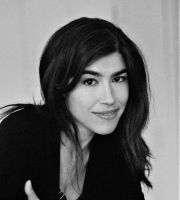by T. Wignesan
“A dying people tolerates the present, rejects the future, and finds its satisfactions in past greatness and half-remembered glory.”
“A strong man makes a weak people. [A] Strong people don’t need a strong man.”
John Steinbeck (Nobel Prize 1962)
( for the DEAD in the Struggle for EELAM )
I
Ages from now, let it not be said:
Blood spills only as brother dies.
Ages from now, let not peace be bled
By chances lost now in sighs.
To the high nor low slams the door
To him who seeks the Law and more.
Take, take the Golden Mean way!
Truth your only key, don’t ever slay!
Where the elephant roams un-tethered free,
The familiar myna will echo carefree
Words of yore buried in sacred memory:
One breed, one species carved in ivory.
No greater fear simmers in the lowlands
Than the stealth of brother against brother;
No higher disdain festers in the highlands
Than vengeance lying in wait for the other.
II
Think not of the promises made and broken,
Think only of the time lost and forsaken.
Every hour, every day, a life blown or taken;
Every month, every year, a people woe-driven.
To the high nor low slams the door
To him who seeks the Law and more.
Take, take the Golden Mean path!
Truth your only key, never the lathe!
Think of Prince Paranirupasingham who to succour
King Jayavira’s queen, to Kandy, fled his throne:
Abandoned to court intrigue, schemes and wiles encore:
A princely retreat, a physician’s penance alone.
First governor, then regent, the last Jaffna King Cankili
Learnt best the conqueror's cruel art of slaughter;
Then, fired by the local converts' iniquitous treachery,
Revolted too late, his head the butt of lofty laughter.
Think of C.P. Ramanathan the island’s cause to defend
Sailed over choppy seas past wild submarines
To raise the nation’s flag in the court of the Empire’s den,
His homeward chariot drawn by one peoples’ teens.
III
What shame if might measures not with muscle?
What disgrace awaits those who fail?
Should wanting life be held lèse-majesté to a tussle?
Should a nation thrive as in a sundered jail?
To the high nor low slams the door
To him who seeks the Law and more.
Take, take the Golden Mean road!
Truth your only key, never the sword!
Decades from now sawn men will in right ask:
Had we then no will to attend to our wounds?
Should not the White Master be called back to task
To bear the burden of our graveyard mounds?
What guidance should wise men need
More than their own tested counsels?
Lay, lay aside the pride of higher breed
Like two strong men upright in councils!
IV
People are made to feel their lives rendered great
By what their leaders do to invoke fate;
Destiny asks not who may stand in as its fated mate,
When all around lives are lost through hate.
To the high nor low slams the door
To him who seeks the Law and more.
Take, take the Golden Mean way!
Truth the only key, no, never slay!
If the Lion strays from its prescribed domain,
The Tiger will seek to sink its fangs in flanks.
Two kings bide their time in a land full of bane,
While the common folk lie razed by tanks.
V
Seek not to replace life with conundrums.
Seek only a life-giving solution.
Herald not the arrival of the enemy with drums.
Let only your heart speak in absolution.
The mountain cannot reach up to the sky.
The lake at the summit is full.
If monsoons come, calling cranes will cry.
Kindred spirits will rally in full.
To the high nor low slams the door
To him who seeks the Law and more.
Take, take the Golden Mean way!
Truth the only key, no, never ever slay!
Can a people simply grow strong in broken places
While strong men before the hour vacate places?
“Man can be destroyed but not defeated.
Man can be defeated but not destroyed.”




